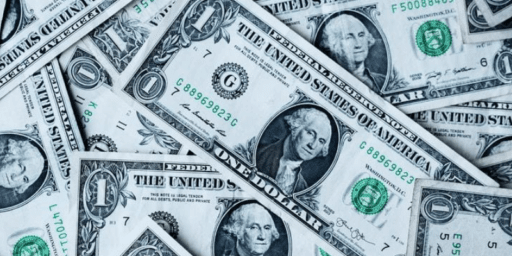A Primer on American Depositary Receipts (ADRs)
American Depositary Receipts (ADRs) are securities of non-US corporations that trade in the US stock markets. Individual shares of such foreign securities represented by ADRs are called as American Depositary Shares. ADRs are created when a broker purchases shares of a non-US corporation on its home stock exchange and transfers them to a local custodian bank, which issues the receipts.
ADRs provide North American investors the means to buy shares in a foreign company such as those listed in the UK, China, or France to name but a few. These ADRs, denominated in US dollars, are traded similar to domestic stocks on the US exchanges, pay dividends in US dollars, and enable an investor to diversify their asset allocation using their local brokerage account.
Why are ADRs used?
For a foreign corporation, issuing a depositary receipt:
- Widens and diversifies their market share.
- Provides an avenue to increase their capital pool.
- Facilitates mergers and acquisitions.
For an investor, buying a depositary receipt:
- Allows investment in successful foreign companies, while using their local brokerage account and local currency (US dollars).
- Does not pose any unfamiliar transaction requirements due to the known trade procedures.
- Provides global stock diversification, while avoiding the management fees associated with mutual funds and ETFs.
What are the drawbacks?
Apart from the usual due diligence required before purchasing a domestic stock, investing in foreign corporation needs added attention (inflation risk, credit risk, etc.). The fundamental and technical aspects of stock analysis may remain the same for foreign stocks but there may be geopolitical issues in that country that an investor would need to be aware of.
For example, buying shares of a corporation based out of a dictatorial regime may be recipe for investment disaster as political unrest may throw the country into an economic tailspin. In addition, the currency of the home country throws another variable into the mix. Since ADRs are based upon the shares of the corporation in its home country, a fall in the valuation of the home currency will reflect on the depositary receipt.
Levels of ADRs
There are different levels of ADRs available.
Level I. These ADRs are highly speculative investments that are traded over-the-counter and not on US exchanges. Information about these ADRs is not easily available as reporting regulations across the world are not as stringent as North America.
Level II. These ADRs follow more stringent reporting requirements than Level I ADRs. Foreign companies registered as Level II ADRs fall under US SEC regulations. These corporations are required to file an annual Form 20-F, which is similar to the Form 10-K for a US company. In addition, the reports created by the foreign corporation must follow standard accounting principles such US GAAP or International Financial Reporting Standards.
Level III. Being the highest level of ADRs, companies under this program have to abide by more stringent rules than Level II ADRs. Under this program, a foreign company is using its depositary receipt to raise capital and hence, files Form F-1 (format for Offering Prospectus) in addition to Form 20-F. Information disclosed to investors in its home stock market must be filed with the SEC (Form 6K) to provide transparency.
Tax Issues
ADRs are treated similar to US stocks; so, capital gains and dividends are taxed at the same rates as US stocks. Nonetheless, an investor should investigate if withholding taxes apply on dividends paid by the foreign corporation and if so, use the appropriate deduction/credit (US/Canada) while filing their income tax.
Do you invest in ADRs? If so, do you buy companies with solid fundamentals or are you using your “play money” to ride a wave? How have your ADR investments fared till date?
About the Author: Clark works in Saskatchewan and has been working to build his (DIY) investment portfolio, structured for an early retirement. He loves reading (and using the lessons learned) about personal finance, technology and minimalism. You can read his other articles here.










Graham, with respect to you query as to why suddenly your account began showing a tax withholding for SSL (Sasol) dividends … well that happened because the govt of South Africa decided to make changes to the tax laws and end the freebie. Going forward there would be a 15% tax withholding on dividends paid to SSL ADRs.
So you need to do 2 things:
1. MOve the SSL stock to a taxable account (from the tax advantaged / retirement account, if thats where you have it now).
2. Claim a tax adjustment in your tax return for the tax withheld on the SSL adr. This would ensure that you do not get taxed twice, once by SA govt, and then again by Canada.
Atleast in the US you cannot claim adjustment/refund of tax witholding for stocks/ADRs in your retirement account (as these accounts are already tax advantaged).
(Please do your own fact check and due diligence. What ever I have sated is mere hearsay, and is no legal/tax advise. Consult your tax attorney/consultant for the exact facts)
I am a Canadian and own an ADR in SASOL (SSL). South African company. I have owned this for 7 or 8 years initially in my RRSP and now in my RRIF. I had trouble getting answers from BMOInvestotline as to the tax treatment. I asked SASOL and they said there was no SA withholding on dividends. My understanding, was that taxation would be based on the Canada-USA tax treaty and because the ADRs were held in registered accounts, no tax would be deducted.
This turned out to be correct. That is until today. I checked my RRIF account and found that tax had been deducted. I called BMOIL and they could not explain why the change. They have to refer it to their tax department! (The one that couldn’t tell me how the taxation worked originally)
Does anyone know of any recent changes that could have triggered this?
Walter, there are no facts to backup your claim, please provide references to said agreement that states that US must take 15%. The US government has nothing to do with ADR taxation. Here is the tax treaty between Canada/Switzeriand stating that only maximum 15% must be withheld from dividends, article 10 section 2c:
http://www.collectionscanada.gc.ca/webarchives/20071126042617/http://www.fin.gc.ca/news97/data/97-045_1e.html
The 35% is withheld completely by the Swiss government if no treaty rate is applied. Source? I’ve spoken directly to Nestle’s depository bank for their ADR (Citibank) and this info is coming from them. They mentioned how they are trying to convince the Swiss side to accept tax treaties with the various countries since non-US investors are increasingly voicing their frustration. The paperwork to bring that down to 15% is processed by the Swiss government, for a processing fee.
As for the UK ADRs, I’ve been a holder of those shares for a few years now in a Non-registered account and have seen first hand, the 0% withholding tax. There is absolutely no truth to 15% withholding tax on UK ADRs. US government is not involved. If you’ve suffered a 15% withholding tax on UK ADRs, you need to talk to your broker or switch.
As for being confused about investing, I am still a shareholder of non-UK EURO stocks regardless of their withholding taxes since my number one requirement is to invest in quality assets and is not motivated by tax. The purpose of my post was to send the message across that Canadians may have preferential treaties with countries not named the US, benefiting from them is not trivial.
Karim, re your comment about a with holding tax or your ADR’s from a Swiss company. Nope sorry your wrong, the Swiss governemnt has a with holding of 35% on all dividends (last time I checked). Your 15% was added due to the US government taking their extra piece due to there agreemnent with the ADR provider. The 15% would still be taken and paid to the US government on your UK ARD’s non less it falls under the special clauses like in a retirement plan. If not you’ll pay the 15% with holding to the US government.
Side note why are people so confused about investing? oh thats right they’re focused on the tax stuff only.
As a Canadian, be aware that you will be subject to the highest statutory withholding taxes when it comes to ADRs, with some exceptions. This is regardless of whether we have tax treaties in place with the countries where these ADRs are domiciled. For example, Canada has treaties in place with both Germany and Switzerland that state that only 15% tax should be withheld from dividends. It turns out that the Canadian stock brokers (BMOinvestorline for me) will not reveal your residency to the ADRs so they won’t know your residency status due to privacy laws. In addition, the ADRs will also ignore the tax treaties with all countries except for US residents where “relief-at-source” is applied (again this is with my experience with German/Swiss stocks). You’ll have to file (on a recurring basis) a form to recover the excess withholding tax and the broker will charge a processing fee. This process, I am told can take 1-3 years. So the issue remains at both ends.
On the positive side, the exceptions happen to be the biggest and the most stable dividend payers: US/UK stocks. For US stocks, the tax treaty is applied and so the 15% withholding tax, for which credit is received on the income tax. UK listed ADRs have NO withholding taxes and they’ve got some phenomenal dividend payers. Sometimes you’ll find dual listed ADRs, one in the UK and one non-UK such as BBL/BHP and UL/UN. Always go with the UK stock in cases like these.
Andres17,
You have clearly missed to point of investing, You consider the investment first then the tax issue/s NOT the other way around.
Is pretty clear that you can’t look at whats important in regards to investing without going into a IRA, This article is about ADR’s not IRA’s or tax issues.
By the way IRA’s are total garbage, you’ll pay more tax at the end then the benefit that you’ll receive.
I see that you don’t even understand what an ADR is, as it is domestic and the underlining shares are from another country. The domestic government (USA) does NOT have a withholding tax on a ADR, but the home country of the stock may have and is withheld before its sent to the ADR holders plus the USA does have a additional withholding tax an non US residents (with some expections).
So give me a break and everyone else about whining about tax issues as you clearly need to get up to speed on both topics and this article isn’t about your lack of taxation.
Walter,
I agree with Paul T. You are failing to see why this is important. If you hold the ADR in a Roth IRA, you don’t have to pay the IRS a single cent on your dividend. But if the domestic government of the ADR has a witholding tax, then that might be considered before investing. Try not to arrive to conclusions so fast next time.
@Paul T yes its very clear that you’re pushing a red herring. You are going to pay tax somewhere, sometime which is not the point of these investing web sites talk about its about the investments themselves.
But hey if you want to whine about a withholding tax, why haven’t you filed a claim to claim it back as outlined under act 10 and 11 in the swiss tax law?
Just saying as tax rules and laws in regards to taxation are super complex as so many factors come into play. So stick to the topic of investment not taxation.
@walter
As an example, I owned ABB ADR traded on a US exchange. When I was paid out the dividend, I had a “NON?RES TAX WITHHELD” line right after my dividend payout. And it was about 35% of my dividend clawed back from me.
So no, it’s isn’t a trivial amount, nor a Red Herring. Taxes should always be considered when making investments. But it shouldn’t be the reason to make and investment, nor to avoid an investment
Paul T, your last point is a red herring. A ADR stock is not a US domiciled company. The article is about investing in a companies stock not the issue of taxation.
Boy, I’m really getting sick and tired reading silly comments about tax vs getting to disuss about the company.